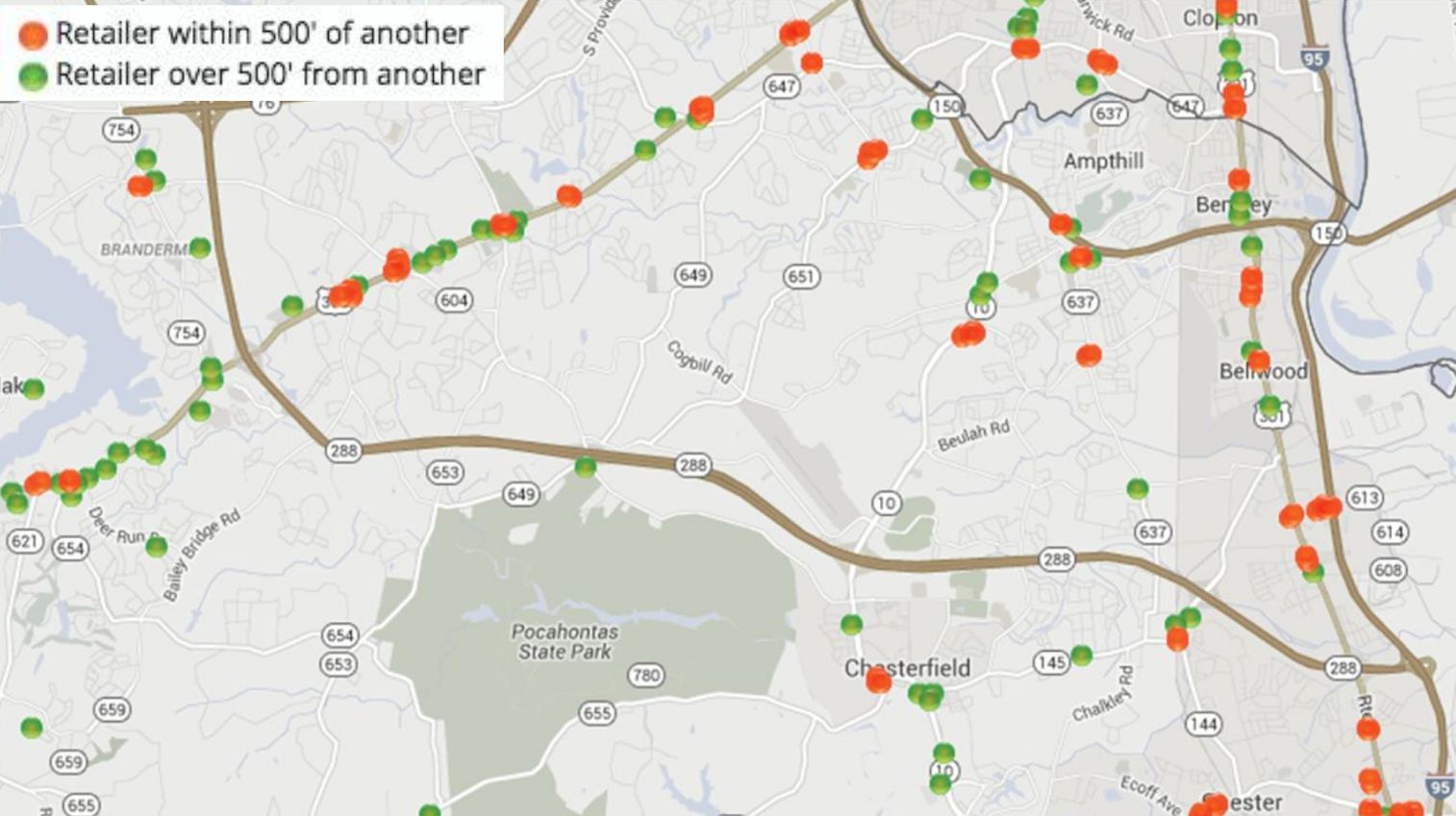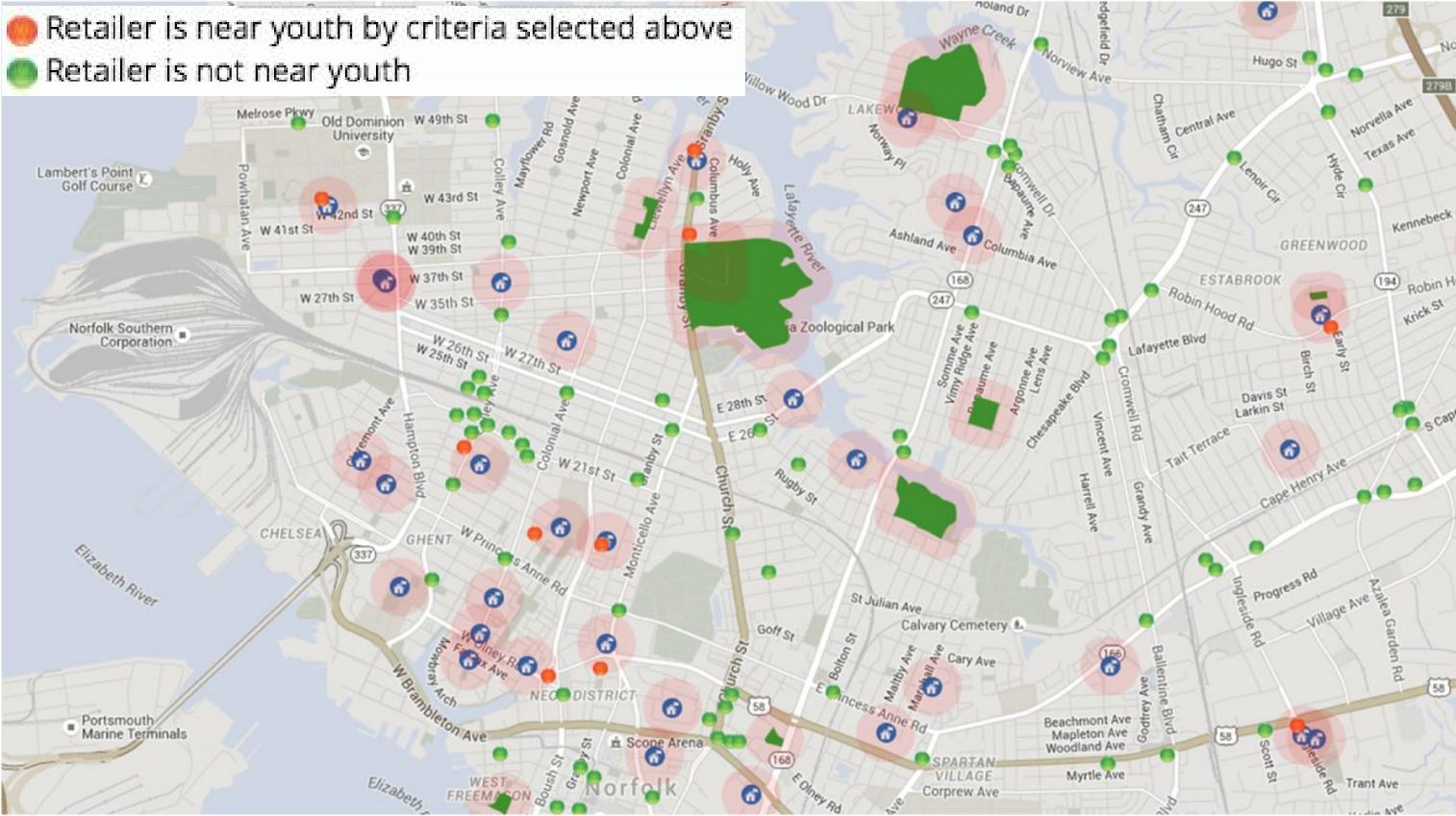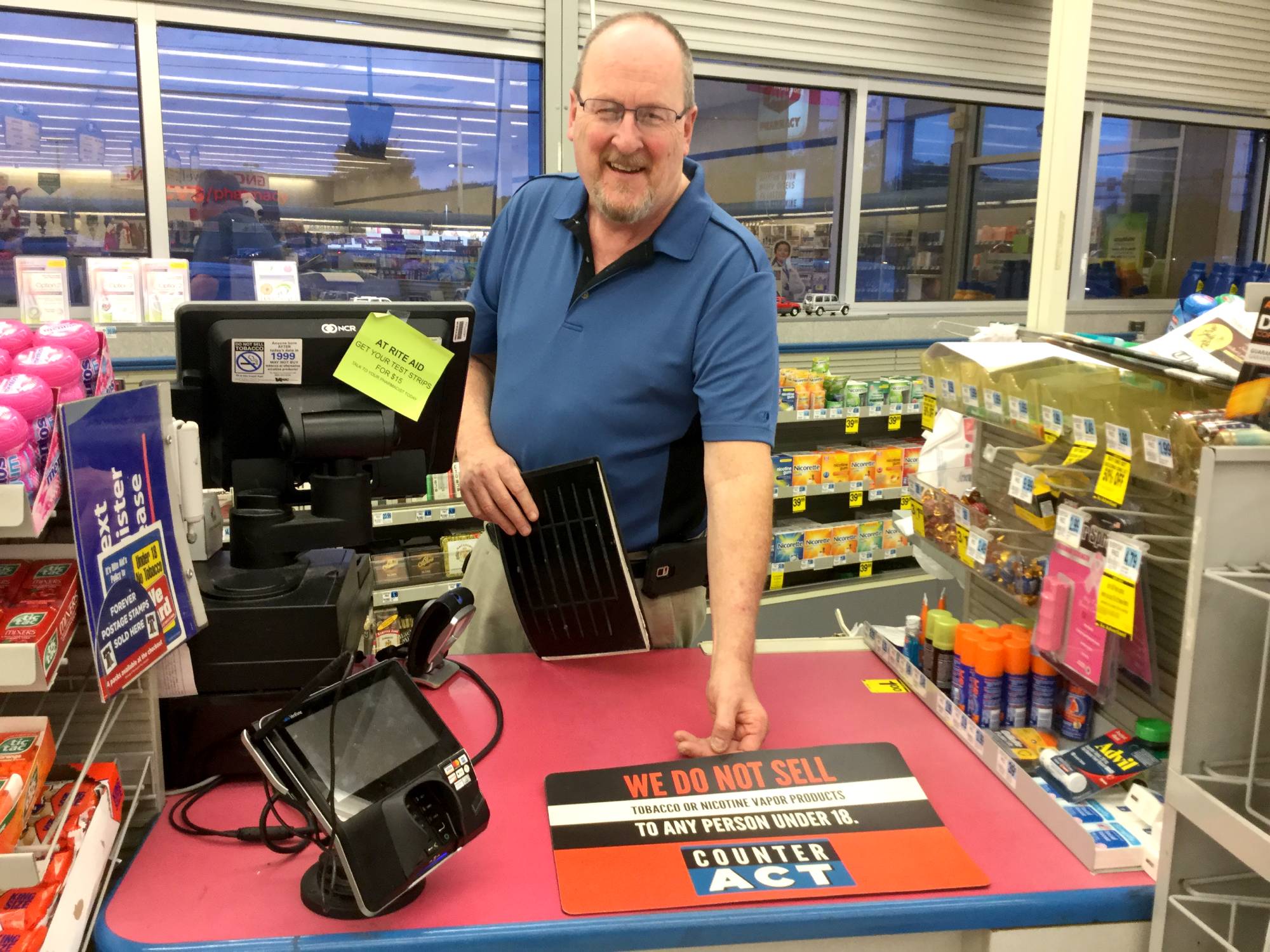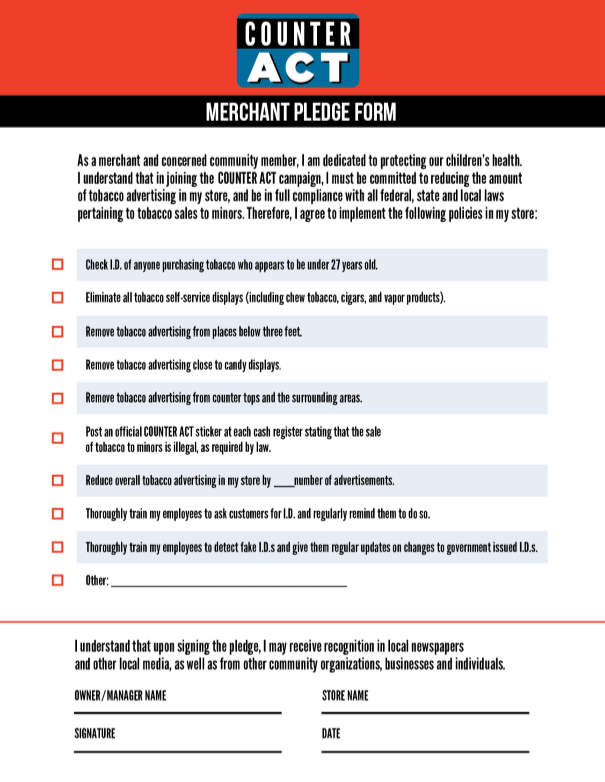Project Description
Overview
In 2015, the Virginia Department of Behavioral Health and Developmental Services (VDBHDS) and Counter Tools entered into a project to create an accurate state-wide tobacco retailer list. Deepening local understanding of the effect of the tobacco retailer environment on health enabled VDBHDS to develop a statewide infrastructure for tobacco use prevention and control and helped to identify and reduce tobacco-related disparities.
Strategy
Beginning from a list of about 4,000 retailers, Counter Tools compiled data from the FDA, Synar, and Dunn & Bradstreet to expand the list to over 8,000 retailers. In an effort to verify accuracy, VDBHDS and Counter Tools reviewed the expanded list and removed all retailers deemed unlikely to sell tobacco.
Next, Virginia Community Service Boards (CSBs) worked closely with Counter Tools to plan out a strategy for ground truthing any missing tobacco retailers. The state was divided into regions and teams were formed that would undertake the enormous task of driving every primary and secondary road in the state and recording GPS locations of all observed tobacco retailers.
This important ground truthing work resulted in the addition of another 2,000 retailers that had not previously been on any list. Interestingly, when comparing commercially available data to this ground truthed data, VDBHDS determined that their previous list was only 18% correct.
Once the retailer list was deemed accurate, the next step was to assess the current state of tobacco products in retail stores. With the help of training and technical assistance from Counter Tools staff, CSBs visited retailers to complete assessments, offer merchant education, and collect pledge forms that documented voluntary pro-public health changes that merchants committed to make in their stores.
The retailer list and store assessment data were entered into Counter Tools’ software tools Store Mapper and Store Audit Center. VDBHDS utilized these to track data, visualize retailer density, and understand the impact of policy changes.
According to 2018 data, about 45% of retailers in the state are located within 500 feet of another retailer. That same data showed that about 41% of retailers are located within half a mile of a school. Using the policy tester in the Store Mapper, VDBHDS was able to examine the potential impact of policies that address retailer proximity.
Retailers within 500′ of another retailer: Chesterfield CSB

Retailers within 300′ of a school/park: Norfolk CSB

Counter Tools’ Store Mapper provides users with visuals, like the samples above, illustrating how policies limiting retailer density or proximity would impact their local communities.
Results
With an accurate retailer list, VDBHDS continues to assess 100 percent of tobacco retailers across the state. These data collection efforts, along with the available analysis using Counter Tools software, have been integral for tobacco prevention and control staff across the state to better understand the effect of the tobacco retailer environment on health.
“I can’t say enough how much I appreciate and value our partnership. We couldn’t be happier with the expertise, the TA, the software, everything. With your help, we have completely reinvented our Synar program and become one of the leaders across the state. The data from the Mapper and POST has been shared with our partners on a state and local level and has strengthened those relationships.”
Next Steps
Due to the success of the tobacco retailer ground truthing project, VDBHDS and Counter Tools expanded its partnership in 2019 to include alcohol surveillance with the creation of an alcohol Store Mapper. This tool will support VDBHDS and the Virginia Alcoholic Beverage Control Authority (ABC) in their ongoing efforts to implement a coordinated approach to reducing and preventing alcohol access to minors in Virginia. The alcohol Mapper will also allow VDBHDS and ABC to look for trends in retailer clustering, and examine any location-based disparities, such as retailer density differences in low-income neighborhoods.
In 2020, several tobacco point-of-sale bills, including tobacco retailer licensing, were introduced to the House. Although these bills were unfortunately carried into the next legislative session, they indicate a building of momentum around tobacco control policies, thanks in part to the work of VDBHDS and Counter Tools.
Published April 8, 2020



